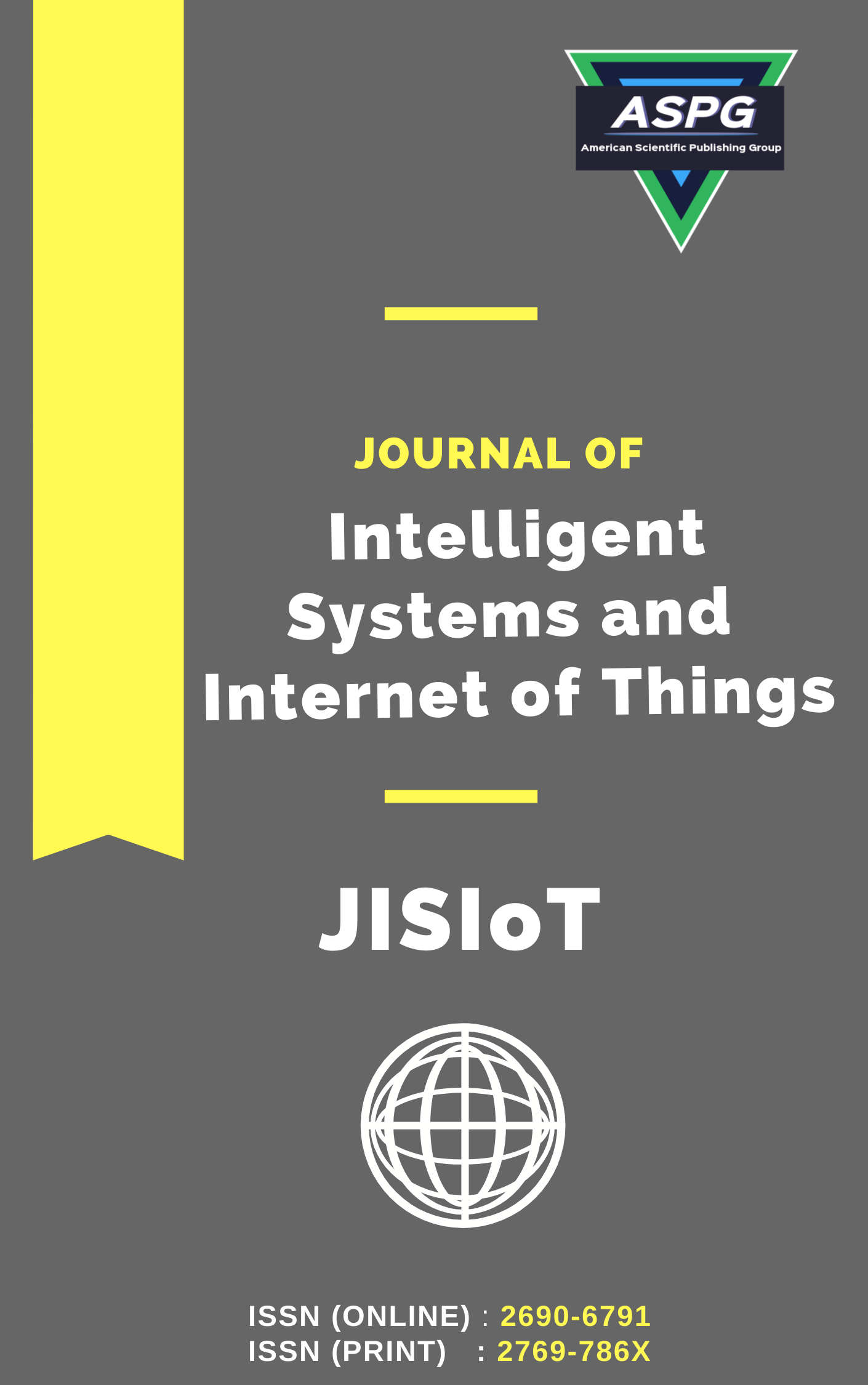

Volume 18 , Issue 1 , PP: 207-217, 2026 | Cite this article as | XML | Html | PDF | Full Length Article
Jyotsnarani Tripathy 1 * , T. Krishna Murthy 2 , S. Manjula 3 , Sukanya Ledalla 4 , Alla Rajendra 5 , P. Lakshmi Harika 6 , K Boopathy 7
Doi: https://doi.org/10.54216/JISIoT.180115
The consistent improvement of remote sensing (RS) technology has resulted in an easy access to a large volume of satellite imagery. There is a need for effective and scalable solutions for widening the application of RS in different fields and making it work efficiently in practical situations. This research propose novel technique in satellite image gathering and cloud IoT network risk management using machine-learning model. Here the cloud IoT network has been used in satellite image collection and this network security analysis has been carried out using secure trust based cryptographic blockchain model. Then this collected image has been classified using convolutional bayes fuzzy markov perceptron basis function model. Experimental analysis has been carried out in terms of accuracy, QoS, recall, latency, scalability. Proposed model attained accuracy of 97%, QoS of 94%, LATENCY of 96%, Scalability of 95%, RECALL of 93%. These results assist decision-makers, planners, and scientists studying remote sensing select an appropriate image classification system for tracking a dynamic, fragmented, and varied landscape.
Cloud IoT network , Risk management , Machine learning model , Satellite image , Cryptographic blockchain
[1] K. K. Jena, S. K. Bhoi, S. R. Nayak, R. Panigrahi, and A. K. Bhoi, "Deep convolutional network based machine intelligence model for satellite cloud image classification," Big Data Mining and Analytics, vol. 6, no. 1, pp. 32–43, 2022.
[2] A. Rahman et al., "Performance of different machine learning algorithms on satellite image classification in rural and urban setup," Remote Sensing Applications: Society and Environment, vol. 20, p. 100410, 2020.
[3] T. I. Leong, Y. M. Abbas, M. A. C. Purio, and H. A. Elmegharbel, "Image classification unit: A U-Net convolutional neural network for on-orbit cloud detection aboard CubeSats," in Proc. IEEE Int. Geosci. Remote Sens. Symp. (IGARSS), Brussels, Belgium, 2021, pp. 2807–2810.
[4] H. A. F. S. A. Ouchra, A. Belangour, and A. L. L. A. E. Erraissi, "Machine learning algorithms for satellite image classification using Google Earth Engine and Landsat satellite data: Morocco case study," IEEE Access, 2023.
[5] R. Gupta and S. J. Nanda, "Cloud detection in satellite images with classical and deep neural network approach: A review," Multimedia Tools and Applications, vol. 81, no. 22, pp. 31847–31880, 2022.
[6] A. Nespoli et al., "Machine Learning techniques for solar irradiation nowcasting: Cloud type classification forecast through satellite data and imagery," Applied Energy, vol. 305, p. 117834, 2022.
[7] S. Saini, R. Dahiya, S. Ratna, and A. Singh, "Satellite Image Classification Using Deep Learning," in Proc. Int. Conf. Disruptive Technol. (ICDT), Greater Noida, India, 2024, pp. 1247–1253.
[8] J. Byun, C. Jun, J. Kim, J. Cha, and R. Narimani, "Deep learning-based rainfall prediction using cloud image analysis," IEEE Trans. Geosci. Remote Sens., vol. 61, pp. 1–11, 2023.
[9] R. Manoharan, "Improving Security and Performance in Chaotic Optical Communication via Real-Time Pilot Signal Processing Techniques," IETE J. Res., pp. 1–9, 2025.
[10] M. Rajesh, S. Ramachandran, K. Vengatesan, S. S. Dhanabalan, and S. K. Nataraj, "Federated Learning for Personalized Recommendation in Securing Power Traces in Smart Grid Systems," IEEE Trans. Consum. Electron., vol. 70, no. 1, pp. 88–95, Feb. 2024.
[11] S. Kopeć, G. Duniec, B. Bochenek, and M. Figurski, "Artificial neural networks in automatic image classifications of cloud from ground‐based observations using deep learning models," Quart. J. Roy. Meteorol. Soc., 2024.
[12] H. Ouchra, A. Belangour, and A. Erraissi, "Exploring Google Earth Engine Platform for Satellite Image Classification Using Machine Learning Algorithms," in Proc. Int. Conf. Smart City Appl., 2023, pp. 271–280.
[13] B. Guo, F. Zhang, W. Li, and Z. Zhao, "Cloud classification by machine learning for geostationary radiation imager," IEEE Trans. Geosci. Remote Sens., 2024.
[14] O. N. Ukamaka, R. O. Enihe, and A. M. Jubril, "Cloud Detection in Satellite Imagery Using Deep Convolutional Neural Networks (CNN)," in Proc. Int. Conf. Sci., Eng. Bus. Driving Sustain. Develop. Goals (SEB4SDG), Abuja, Nigeria, 2024, pp. 1–6.
[15] A. S. Minkin and O. V. Nikolaeva, "Cloud Recognition in Hyperspectral Satellite Images Using an Explainable Machine Learning Model," Atmospheric Oceanic Opt., vol. 37, no. 3, pp. 400–408, 2024.
[16] N. Rajendiran, S. Sebastian, and L. S. Kumar, "Cloud Segmentation, Validation of Weather Data, and Precipitation Prediction Using Machine Learning Algorithms," Arab. J. Sci. Eng., pp. 1–31, 2024.
[17] K. Li, N. Ma, and L. Sun, "Cloud detection of multi-type satellite images based on spectral assimilation and deep learning," Int. J. Remote Sens., vol. 44, no. 10, pp. 3106–3121, 2023.